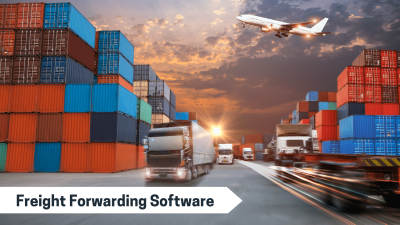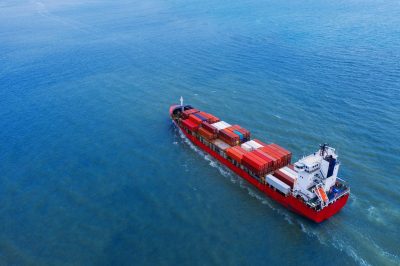Key Transport Documentation
All transported goods must have the proper transport documentation upon delivery, regardless if these goods are transported within the US or to another country. However, transporting goods internationally usually require more documentation.
But for now let’s focus on the three most essential types of transport documents. Bill of Lading, Freight Bill and FOB Terms of Sale, meant for transporting goods within the U.S.
1) Bill of Lading
We previously looked into Bill of Lading as a legal document representing the agreement between the Carrier and Consignee that states the freight’s collection location, rate, quantity, route information, commodity class and ETA. Signed by a Carrier and issued to a Consignee with a document title, shipment origin and the contract terms for the transportation.
A carrier must have the Bill of Lading prepared in order to ship anything. Since it is the receipt of goods for shipment as well as a legal binding contract between the carrier and the consignee it must follow a couple of terms.
A. Liability
Within the BOL contract the Carrier is held liable for any loss of, damage to, or delivery delay of the goods, but is also protected from:
- Acts of God
- Improper packaging by the shipper
- Public enemy or public authority
- Normal loss of goods such as leakage, shrinkage or evaporation
B. Articles of Extraordinary value
The Carrier’s liability for articles of extraordinary value is based on the shipper’s declaration of value made at the time the shipment is offered for transportation. Shippers must declare all the items of extraordinary value through written agreement (as part of the BOL) to the carrier. These items are defined as items having a value greater than $ 100.00 per pound per article. For example:
- Antiques
- Jewelry
- Art Collections
- Currency
- Cameras and other electronics
If the shipper declares the items of extraordinary value, then the carrier is liable for any loss or damage of the items during their custody. Carriers can choose to do either of the following in the case of an incident:
- Repair the item
- Replace the item
- Make a cash settlement for the cost of the repair or current market replacement value
The carrier can also refuse to carry items of extraordinary value if the items aren’t rated in the published classifications unless they have a special agreement with the shipper.
C. Refused Shipments
If the consignee refuses to accept the goods delivered by the carrier, then they shall notify the party liable to pay the freight charges and seek instructions for disposition of the property (i.e. redeliver, return to origin). Additionally, if the goods aren’t accepted within a set time then the carrier shall keep the goods with subject to reasonable storage charges.
D. Reasonable dispatch
Reasonable dispatch is a BOL term that sets the legal standard for measuring liability for delivery delays. However, under the standards of Bill of Lading, reasonable dispatch states that the carrier isn’t responsible for transporting a shipment by a set schedule or time for a particular market. They are simply responsible for transporting good with reasonable dispatch unless a schedule was arranged, in writing, prior to shipment.
E. Claims
As a condition precedent to recovery for loss, delay, or damage to goods, claims must be filed, in writing, with the carrier within 9 months after a reasonable time of delivery has elapsed. Claims shall then be processed by the carrier in accordance with 49 CFR part 370. The carrier also has the ability to file a claim against the shipper through proper transport documentation.
F. Explosives
Another important term within the BOL is one that deals with dangerous materials like explosives. In this case, the carrier should have full written disclosure when shipping such materials. If not, they can’t be held liable for any losses.
G. Alterations
Any changes or additions to a shipment must be noted by the carrier in order to make sure they’re implemented.
H. Delays
This term sort of goes back to reasonable dispatch. Without a shipment schedule, the carrier can’t be held liable for any damage or loss due to delays in transit.
I. Recourse
Lat, but not least for BOL terms, upon delivery the carrier can’t ask the shipper for any extra charges.
2) Freight Bill
We had also looked into freight bills previously as a key freight charge. However, it is considered an important part of transport documentation as well.
A freight bill works as the carrier’s invoice to the shipper for all the charges that they incurred. They can also include additional charges or information to clarify the information on the BOL. The freight bill helps the accounting team as a support documentation to justify billing the shipper or the carrier, depending on the contract terms. In addition to auditing shipping practices, evaluating records and ensuring successful delivery of goods. But, unlike the Bill of Lading, it doesn’t serve as evidence under a court of law.
While information included on a freight bill varies from company to company there are some common details. The most common details include name and contact information of the shipper and the carrier as well as item descriptions, the consignee, the origin, destination, weight and charges.
Check out the Different Types of Freight Charges
3) FOB Terms of Sale
The final, but essential transport documentation needed for shipping within the U.S. is Free on Board (FOB) Terms of Sale. FOB is a transportation term that indicates which party will control the goods, cover transportation costs and the point at which the title for the shipment passes on to the buyer. The price for goods includes delivery at the seller’s expense to a specified point and no further.
Also, if the FOB is identified as delivered then the shipper will be responsible for transportation costs. But if the terms of sale show FOB Origin then the buyer will get the title for the shipped goods and is responsible for all the transportation costs.
BoxOn Logistics – Your Guide to All Things Logistics
BoxOn isn’t just able to help streamline all your freight operations and provide reliable freight services for all your clients through our Logistics Software. We are here to be your guide to all things logistics because we believe that in order to improve your business, we have to know your business.
So, subscribe to our newsletter or follow us on social media! We know what we are doing. Don’t believe us?






COMMENTS